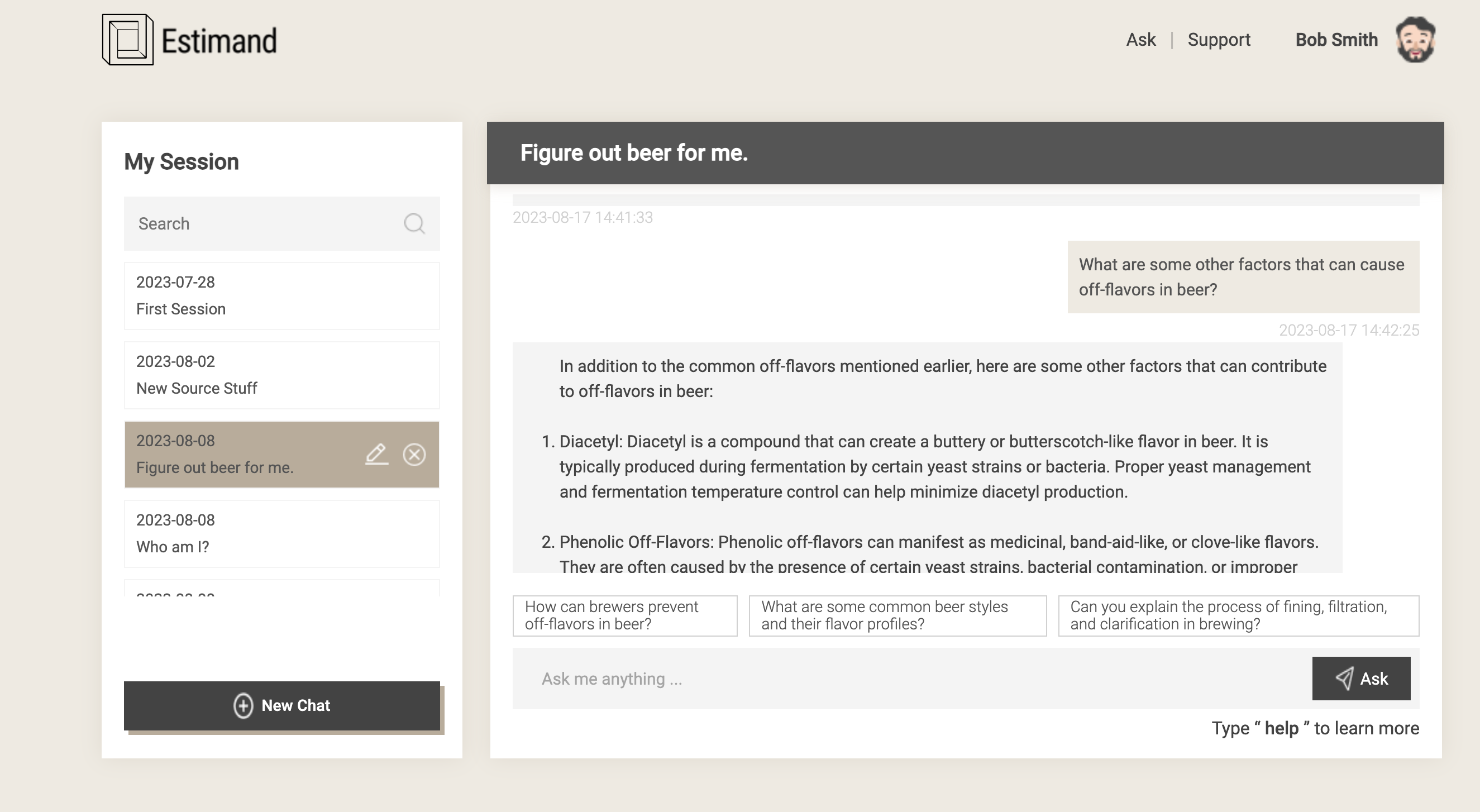
June 17, 2025
Estimand
Summer 2023
AI strategy, ML infrastructure, data architecture, RAG pipeline design, vector & graph database integration, generative model grounding, backend engineering, technical leadership, and cross-functional coordination with frontend developers.
The client wanted to construct an MVP of a product whose end-user was craft brewers, which would solve craft brewers problems related to cost of goods sold such as ingredient substitution, allergen replacements, flavor profiling, and the cost of labor.I constructed a generative AI chatbot that was trustworthy by grounding it to understand the taste and smell of beer. By using a vector database and graph database for retrieval augmented generation in concordance with an agent-based model, we were able to cite sources consistently, reduce hallucinations and craft an expert which could do the use cases desired by the client.
The graph database was used to construct a database of tens of thousands of beer recipes which could be queried to find similar beer recipes and calculated flavor profiles of specific beers. The vector database held thousands of pages from various books about beer and chemistry which could be retrieved by the chatbot at any time.
I played the role of the Chief AI engineer of the project, architecting and coding up the entire backend. I coordinated and led the work with front-end developers for the construction of the front-end.
Delivered a functional MVP that demonstrated real-world viability for AI-assisted brewing innovation. The system successfully reduced hallucinations, provided ingredient swap suggestions with contextual justification, and returned flavor profiles and recipe matches grounded in actual brewing data. Stakeholders praised the domain-specific accuracy, reliability, and potential to scale as a brewery operations tool. The product obtained up to 150 users.